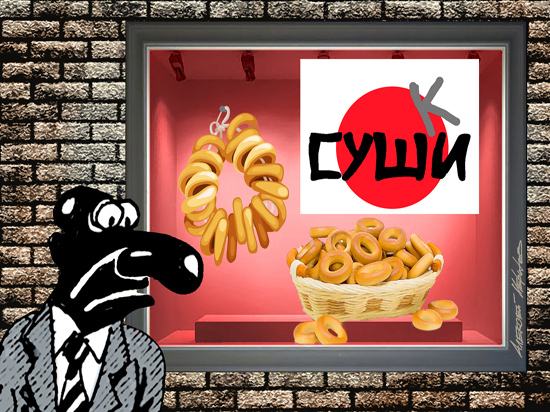Experts Explain Why Cereal Prices May Rise
Rice is one of the few foods that we rush to buy ahead of time in anticipation of a rise in price. Iron option: stored for a long time, reduces toxins in the body, prevents the deposition of salts. And it looks like it's time for us to pick up the shopping bags again and stock up «for a rainy day.» According to wholesalers, the price of rice may rise by up to 30% in the near future. Today, it can be purchased on the shelves from 90 rubles per kilogram (cheap domestic) to 150-165 rubles (expensive imported).

Rice for a very long time, since the spring of last year, was strengthened and did not grow in price. Moreover, at times it even became cheaper — however, by a fraction of a percent. So, according to Rosstat, in February 2023 compared to December 2022, it fell by as much as 1.9%. What brought domestic experts into a real stupor. Indeed, last year in Russia, due to an accident at the dam of the Fedorovsky hydroelectric complex in the Krasnodar Territory, there was a serious crop failure. Farmers received less than 300 thousand tons of this product: instead of the planned 1.1 million tons, they collected 800 thousand. And the one that was eventually collected and buried in the bins of the motherland turned out to be not of very high quality either.
Last year's cataclysm with a hydroelectric complex on the Kuban River (it collapsed twice!) left us less and less chances for a high harvest, and even more so for low prices for this cereal. As you know, domestic producers consider any man-made disaster to be a convenient reason for raising prices.
And now, it seems, the “long-awaited” moment of price increase has finally come. Wholesalers have already officially announced that, they say, expect prices to rise. And not for the traditional 5-10% for the consumer market, but immediately for 30%: what is there to trifle?!
Retail chains also received such notifications, they are rewriting price tags. It is already known in some supermarkets that rice at the new prices (so far 8-15% more expensive) will begin to arrive to them from March 27. This means that from next week it will be 25-30% more expensive in retail on retail shelves.
As we were told by Dmitry Leonov, Deputy Chairman of the Board of the Rusprdosoyuz Association, a ton of rice groats in wholesale on average in the country is On March 17, it cost about 64,135 rubles — against 63,760 in February. And a year ago they were at the level of 51.6 thousand rubles per ton.
Of all the cereals in our country, rice is considered the most popular (on average per year its consumption per capita is 4 kilograms) and buckwheat — it is eaten by about 3 kilograms. Based on this proportion, some analysts do not see the increase in the price of rice as a particular problem for the taxpayer's wallet. Say, rice will rise in price — switch to buckwheat … Although if this happens, then in terms of the growth of the price index, rice will be on a par with onions, which added almost 40% in value only in February. And analysts do not see troubles for the reason that buyers do not particularly favor round-grain Russian rice. In cooking, it is usually used only as a cereal for children. And something especially tasty, for example, pilaf, is made from imported long-grain rice.
And he, taking into account falling volumes in the domestic market, did not take long to wait. According to Rusprodsoyuz, in January-August last year (more recent statistics are not yet available), imports to Russia from India (the main supplier), Thailand, China, Pakistan and Vietnam increased by 4.5%.
In general, at any time you can switch to buckwheat, fortunately, everything is in order with it: the harvest in 2022 was a record one. As housewives say, about three months ago, buckwheat appeared on sale in plastic bags at 50 rubles per kilogram. Although earlier the cheapest cost 80-90. And the cheaper one is no worse than the more expensive one.
In the light of recent statements by wholesalers, rice is no longer in danger of such a fate (price reduction). It only remains to recall that when Russia imposed an embargo on rice exports until the end of 2022 (today, for well-known reasons, it was extended until July 1 this year), accusations against Moscow rained down from abroad. That it, they say, artificially creates a shortage in the world market and rice prices, especially in poor countries, will become unaffordable.
As it turned out, the cost of this product in the world has not changed much — Russia exports less than 1% of total production . But inside the country this spring, prices can come off well…

